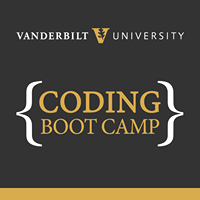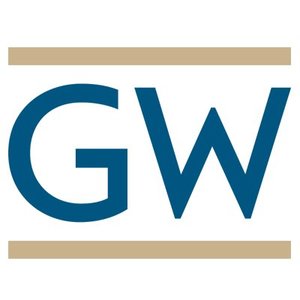How to Learn Cryptocurrency - 13 Bootcamps to Get You Started
What You Need to Know about Cryptocurrency
The concept of cryptocurrency has been around since the early 80s when Dave Chaum designed cryptographic electronic money called ecash. Eventually, ecash evolved into Digicash, which was an early form of cryptocurrency that required a specific software to make payments. By the mid-90s, the government started looking into the security of “electronic cash,” and the NSA released a paper through an MIT mailing list about a potential cryptocurrency system1. However, it wasn't until 2009 that the anonymous developer, “Satoshi Nakamoto”, created the first decentralized cryptocurrency, Bitcoin2. Cryptocurrency has been gaining in popularity ever since.
If you want to learn more about cryptocurrency, there are courses that cover important fundamentals like blockchain basics and trading and others that dive into advanced practices like financial investment. Some programs teach students about cryptography and how to create their own cryptocurrency. For students interested in learning cryptocurrency at a bootcamp, check out our comprehensive list below.
What is Cryptocurrency?
Cryptocurrency is an internet-based form of digital currency created to be a medium of exchange. Cryptocurrency has a few defining characteristics:
- It is digital money made from code
- It is an encrypted string of data that is created using blockchain technology
- It is decentralized, and its economy is monitored by a peer-to-peer internet protocol
Cryptocurrency's nature makes the transactions irreversible (which makes it secure and immutable), more anonymous to use, fast and global, and permissionless, meaning you don't have to ask anyone to use it or have any limitations on amounts or how you can use it.
What is Cryptocurrency used for?
People have begun to use cryptocurrency to invest in startup companies, make private financial transactions, travel, as payment for renting out extra hard drive space to the cloud, or as payment on a blockchain-based platform, like Steemit. Cryptocurrency also provides quicker transactions and more anonymity and security.
Why learn Cryptocurrency?
Interest in cryptocurrency is growing because it is secure, decentralized, and easy to use. If you want to enter a financial field or industry that is beginning to use cryptocurrency, it's helpful to understand what it is, its benefits, how it's used, and why it's used. If you're a developer or want to be a developer that works with blockchain, knowing about cryptocurrency and the technology behind it is helpful. It's also crucial to learn about cryptocurrency if you have plans to use it or invest in it. Industries that are using or accepting cryptocurrency include:
- Tourism
- Banking
- Fast food
- Education
- Private Equity investment
- Real estate
- Social media
- Automotive
- Art
- Gambling
Learn Cryptocurrency at a bootcamp
Bootcamps, courses, and certificate programs are great ways to learn about cryptocurrency. Udemy covers it in a Bitcoin and Cryptocurrency Bootcamp course, while the University of Washington teaches it in a FinTech bootcamp. Blockchain at Berkeley offers a 6-week course of edX called Bitcoin and Cryptocurrencies. If you're looking for programs that teach cryptocurrency, start by looking at our comprehensive list below.
Comprehensive List of Cryptocurrency Bootcamps
Vanderbilt University Boot Camps offer 12-week, full-time, and 24-week, part-time courses in web development; 24-week, part-time courses in data analytics and cybersecurity; and an 18-week, part-time course in digital marketing. The full stack curriculum includes HTML, CSS, JavaScript, jQuery, Bootstrap, Express.js, Node.js, databases, MongoDB, MySQL, and Git. The data curriculum includes programming in Excel, Python, R programming, JavaScript charting, HTML/CSS, API interactions, SQL, Tableau, fundamental statistics, machine learning, and more. Enjoy close collaboration with other...
UW Boot Camps offer 24-week, part-time, and 12-week, full-time web development courses, and a 24-week, part-time financial technology course. The full stack curriculum includes HTML, CSS, JavaScript, jQuery, Bootstrap, Express.js, Node.js, databases, MongoDB, MySQL, and Git. The fintech curriculum covers Python programming, financial libraries, machine learning algorithms, Ethereum, blockchain, and more. Applicants do not need programming experience to enroll, but once admitted, all students will complete a pre-course tutorial. UW Boot Camps are designed for...
GW Boot Camps offer 12-week, full-time or 24-week, part-time web development courses, 24-week, part-time data analytics, cybersecurity, UX/UI, and financial technology (FinTech) courses, and 18-week, part-time digital marketing, and product management. The full stack curriculum includes HTML, CSS, JavaScript, jQuery, Bootstrap, Express.js, Node.js, databases, MongoDB, MySQL, and Git. The data curriculum includes programming in Excel, Python, R programming, JavaScript charting, HTML/CSS, API interactions, SQL, Tableau, fundamental statistics, machine learning, and more. Enjoy close collaboration with...
Start Your Career with a Top-Rated Bootcamp
Best Bootcamps received an average 4.03 of 5 based on 280 reviews.
References
- How to Make a Mint: The Cryptography of Anonymous Electronic Cash. [online] Available at: https://groups.csail.mit.edu/mac/classes/6.805/articles/money/nsamint/nsamint.htm [Accessed 30 July 2020]
- What is Bitcoin? [online] Available at: https://bitcoin.org/en/faq#what-is-bitcoin [Accessed 30 July 2020]




